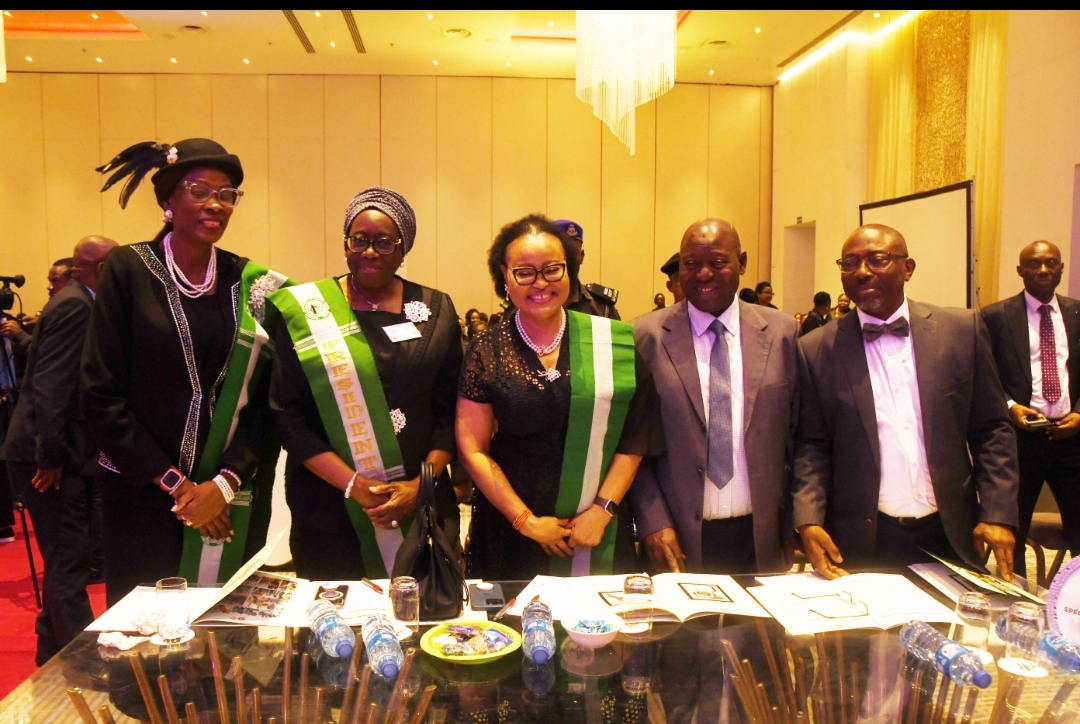
LAGOS GOVERNOR CHARGES WOMEN JUDGES TO IDENTIFY CHALLENGES, COLLABORATE ON SOLUTIONS
Governor Babajide Sanwo-Olu of Lagos State has charged women judges to identify obstacles that hinder women’s advancement and strategies and collaborate on how to overcome them. He urged them to carve out a future where women in the legal profession would stand on equal footing with their male counterparts.
Sanwo-Olu gave the charge while addressing the First South-West Zonal Workshop of the National Association of Women Judges of Nigeria (NAWJN) held on Thursday at Marriot Hotel, GRA, Ikeja, with the theme: “Breaking Leadership Barriers for Women in Legal Profession”.
The Governor, who was represented by the Secretary to the State Government, Mrs. Bimbola Salu-Hundeyin, expressed joy that Nigerian women judges compete favourably and effectively with their counterparts globally in the dispensation of their sacred duties as members of the hallowed inner bar. He celebrated the women judges, particularly those in the South West of Nigeria.
Mr. Governor also commended the Justice of the Supreme Court, Hon. Justice Kudirat Kekere-Ekun for sustaining the platform for women judges to confer and build a structure that would sustain the legal instrument of the state and the country.
“Your dedication and commitment to advancing women’s leadership in the legal profession are truly commendable and I am confident that this conference will provide robust solutions and forge new and workable strategies to bring about lasting and tangible change that you have constantly desired and would live forever in our lives”, he said.
The Chief Judge of Lagos State, Hon. Justice Justice Kazeem Alogba, in his remarks, noted that the female gender is becoming more successful and advancing in the legal profession.
To buttress his position, he stated that during the just concluded ‘Call to Bar’ held on March 7 in Abuja, he received into the Nigerian Bar, the Overall Best Student of the Year from the Nigerian Law School (NLS) for this year, one Lawal Aminat Odunayo, a young woman.
He said she also emerged as the Best Promising Student of the Year as well as the Best Female Student in Civil Litigation.
Earlier in her address, Justice Kekere-Ekun, who is the President of NAWJN, remarked that there is still much work to be done notwithstanding that the country has come a long way in terms of women achieving leadership positions in the legal profession.
Justice Kekere-Ekun noted that there are still many challenges inhibiting women from reaching the zenith of their careers which she listed to include domestic impediments, difficulties in maintaining a work/life balance, lack of support in the home, working conditions that are not favourable to women, such as frequent postings of women with young families, gender bias – the belief that certain positions are more suited to the male gender and lack of mentorship programmes, to name a few.
She pointed out that women have been exceptionally blessed by God with innate skills and the ability to multitask, which can enhance and support nation-building.
She said that the International Association of Women Judges had partnered with Co-Impact, a philanthropic collaborative fund to develop and implement a multi-year programme to enable, support and promote sustainable leadership pathways for women in leadership in the Global South.
She also revealed that the association is also working with affiliate Associations in five countries (Nigeria, Kenya, South Africa, Mexico and the Philippines) to address and work out strategies to overcome the barriers confronting women in leadership in the profession, adding that the initiative is called Women In Leadership In Law (WILIL).
She said it was for this reason that the executives of NAWJN decided to hold workshops in the six geo-political zones of the country to beam a spotlight on these challenges and to also proffer solutions that are uniquely suited to our environment.
She hoped that the series of workshops would provide a roadmap that would lead to the enhancement of women in leadership in the Judiciary and other fields of endeavour, which is expected to positively impact high-level decision-making and overall best practices within the profession.
